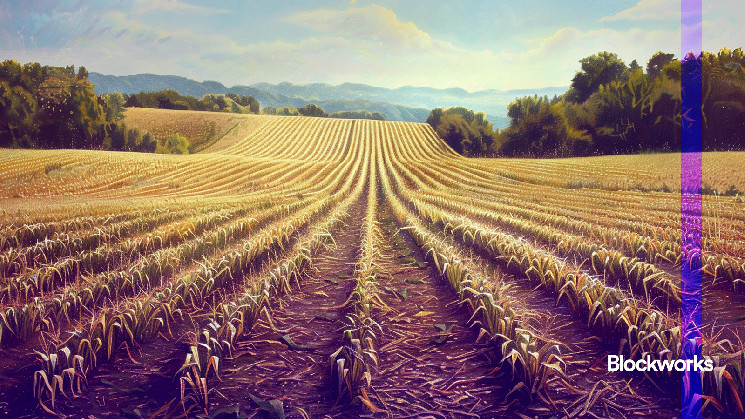Global food supply chains face significant challenges: They’re often inefficient, costly and lack transparency. This creates an environment where farmers may not always receive fair compensation for their hard work, while consumers can face higher prices.
It’s a systemic problem that needs a systemic solution, and that solution stares us right in the face: agricultural trade tokenization.
Despite this technology’s immense potential, adoption in the agricultural industry has been slow. Many organizations hesitate to embrace change, citing concerns about complexity and regulatory uncertainty.
The true value of trade tokenization lies in its ability to solve real, tangible problems that have plagued the agriculture industry for decades. Eliminating intermediaries can increase transparency, reduce settlement times and lower costs.
But while some in the industry argue that the current system, though imperfect, is familiar and predictable, the benefits of tokenization far outweigh the short-term challenges of adoption.
Pitfalls of current supply chains
Right now, our food supply chains are a black box. They’re opaque, convoluted and rife with inefficiencies. On average, agricultural trade suffers from settlement times of 3-7 days and fees ranging from 6-10%. That’s unacceptable.
It’s not just about numbers. The system’s lack of transparency breeds mistrust and enables bad actors to manipulate prices and engage in fraudulent activities. Ultimately, it is the farmers and consumers who bear the brunt of this inequitable system.
Tokenizing the trade can change all that. By bringing agricultural trade transactions on-chain, we can create a transparent, efficient and trusted ecosystem that benefits everyone.
Imagine a world where you can trace your food from farm to fork — knowing exactly where it came from and how it was produced. Imagine a world where farmers can get fair prices for their produce — without intermediaries taking a 40% cut. Imagine a world where consumers can trust the food they buy — knowing that it was produced sustainably and ethically.
The benefits of tokenization don’t stop there. Smart contracts on high-throughput blockchains like Solana can automate transactions, reduce settlement times and minimize fees. This increased efficiency can lead to cost savings that can be passed on to farmers and consumers. Such systems also lower the barriers to entry and create easier access to markets for smaller producers and farmers.
Moreover, tokenization lays the groundwork for future innovations like fractional ownership and investment in agricultural assets. In time, small-scale farmers could tokenize their land or crops, allowing them to access capital and participate in the global food system more equitably.
In the current world, small-scale farmers often face a dilemma: They either have to sell a significant part of their business to a single company to raise capital, or they struggle to secure funding. However, with the possibility of tokenizing their assets, small-scale farmers can sell small portions of their business to interested parties while remaining the majority holders and retaining control over their business.
Addressing the skeptics
Of course, realizing the full potential of trade tokenization in agriculture won’t be easy.
Many farmers and agricultural organizations feel they lack the technical expertise to navigate this new system. They worry about the resources required to adopt and use these new technologies.
There are also questions about regulation and legal frameworks. The legal status of tokenized assets is still evolving, and some organizations seem wary of investing in a system that lacks clear regulatory guidelines.
However, these concerns should not deter us from pursuing the transformative potential of trade tokenization onchain. The industry doesn’t have to navigate this transition alone.
By collaborating with blockchain experts, policymakers and educational institutions, we can create a supportive ecosystem that helps agricultural organizations embrace this technology with confidence.
We need to invest in educational initiatives to make the benefits of tokenization accessible to all participants, regardless of their technological background.
We also need a supportive regulatory environment that recognizes the potential of tokenization and provides clarity around its legal and tax implications. Policymakers must strike a balance between fostering innovation and protecting the interests of all stakeholders.
The potential rewards of tokenization are too significant to ignore, and authorities are now getting onboard. By tokenizing agricultural trade, we can take a significant step towards a food system that is more transparent, efficient and equitable. A system that benefits farmers, consumers and the planet.
 blockworks.co
blockworks.co
